Philosophy of history 1. History as

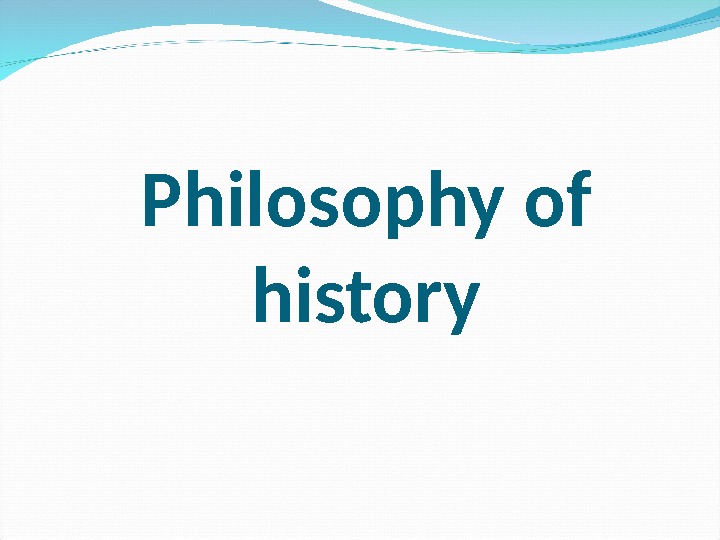
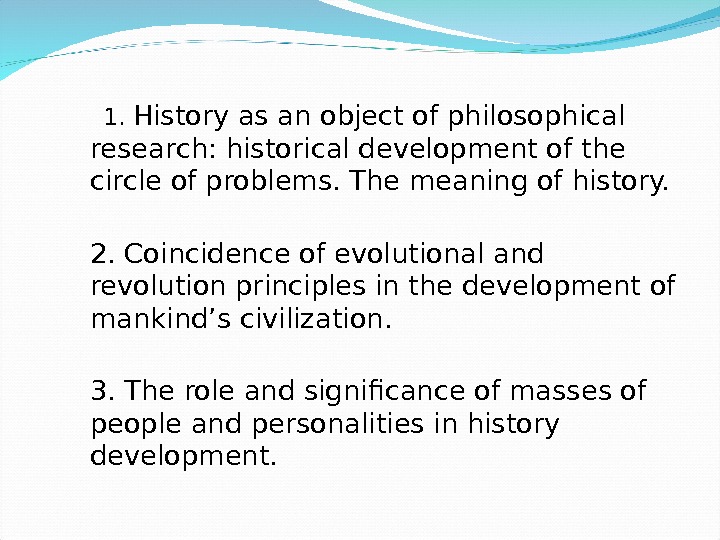
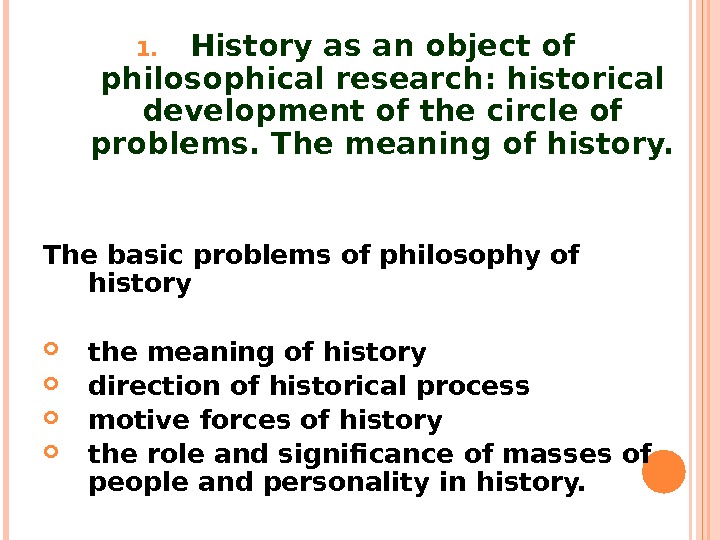
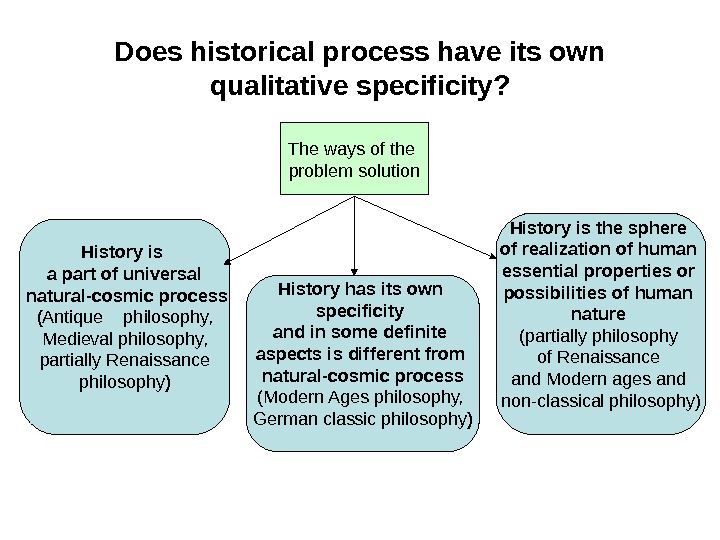
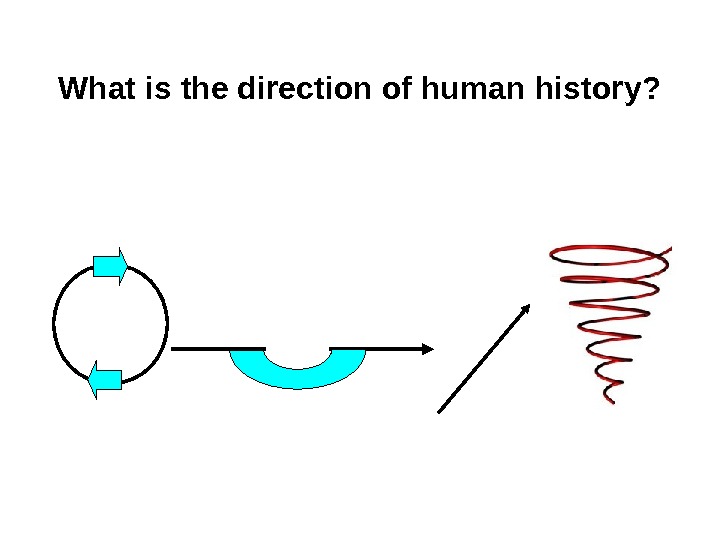
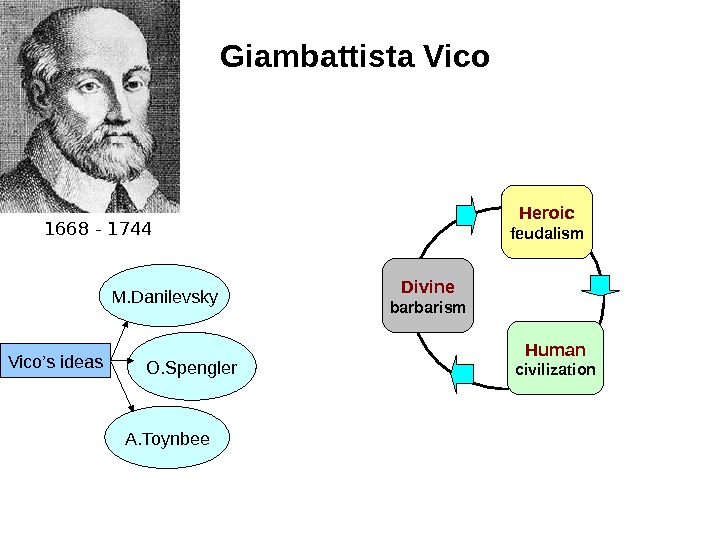
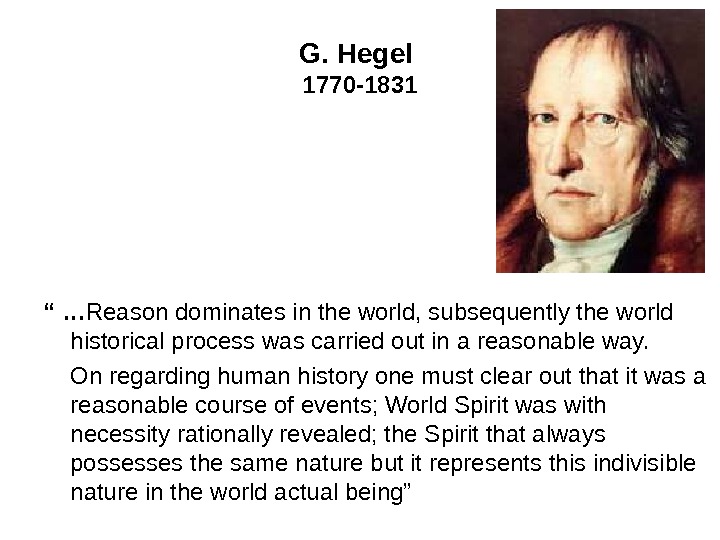
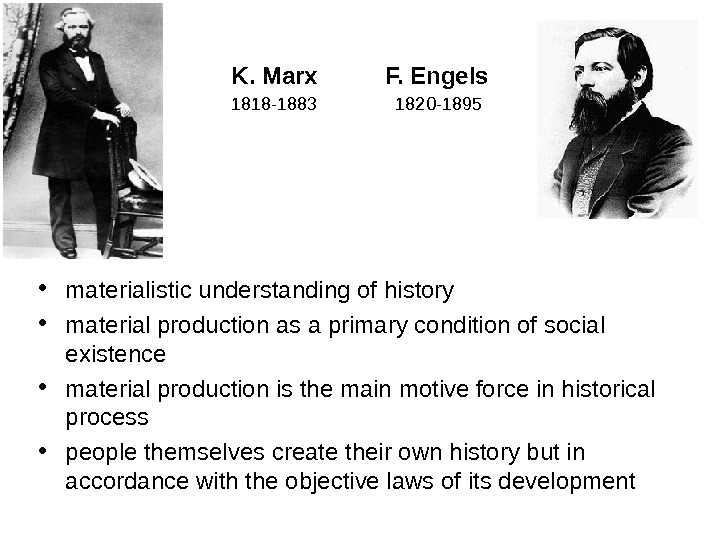
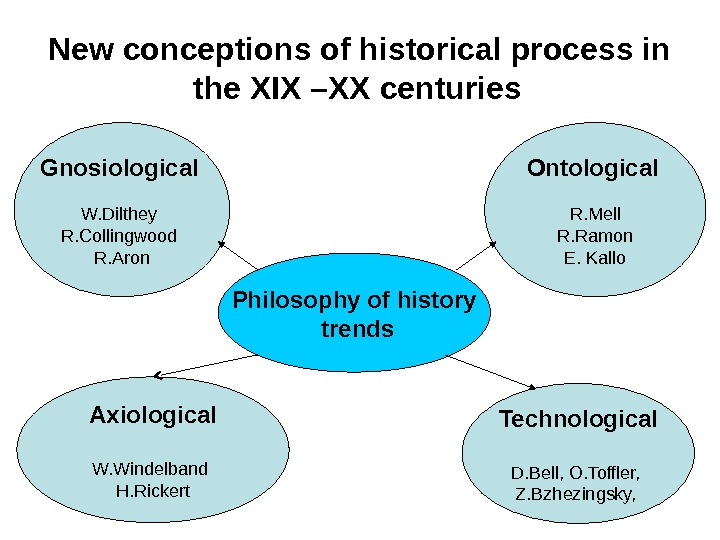
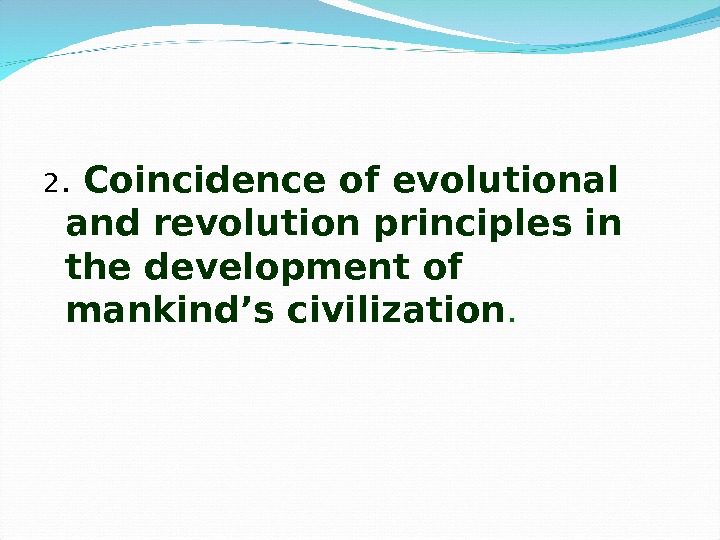
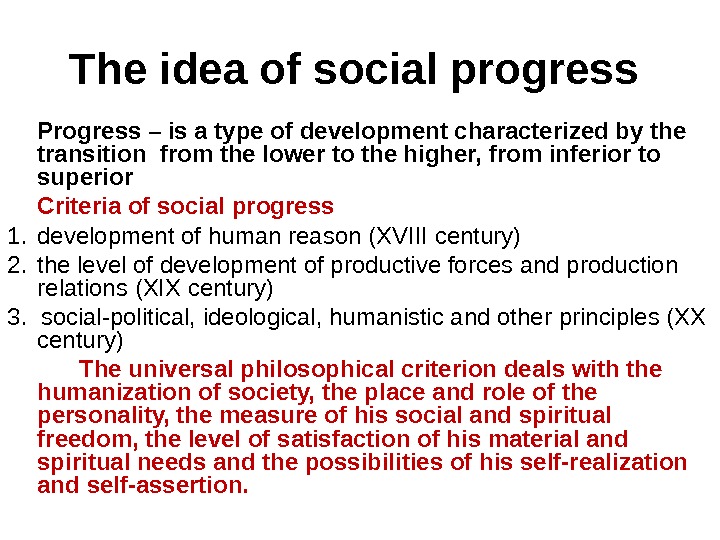
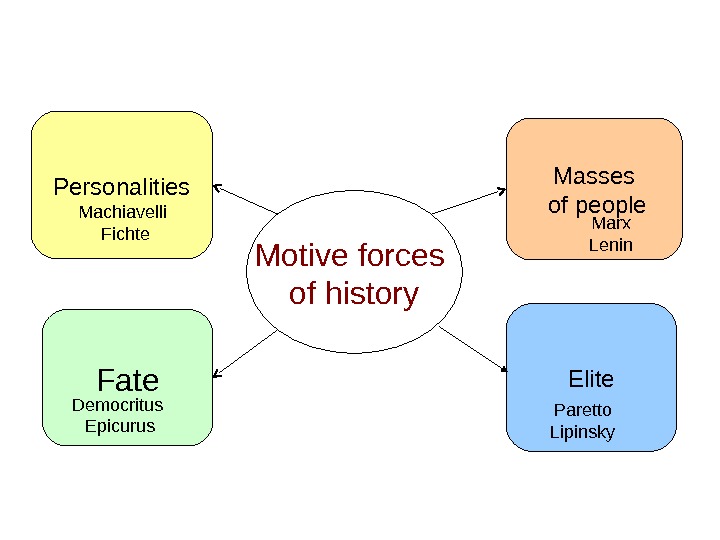
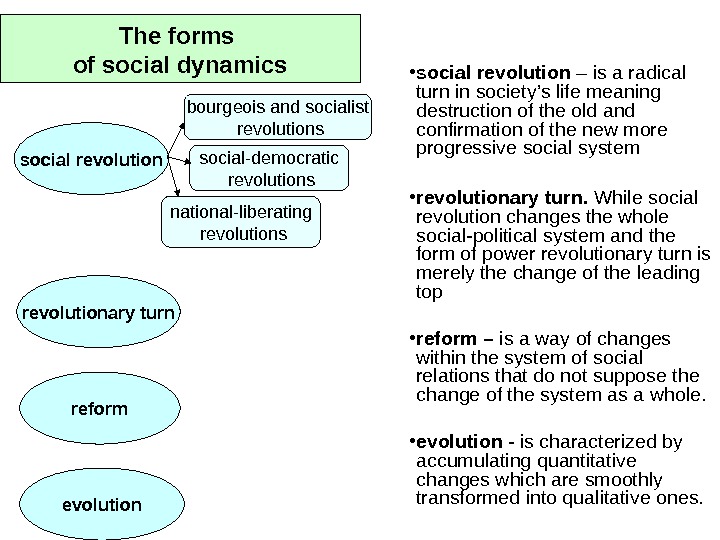
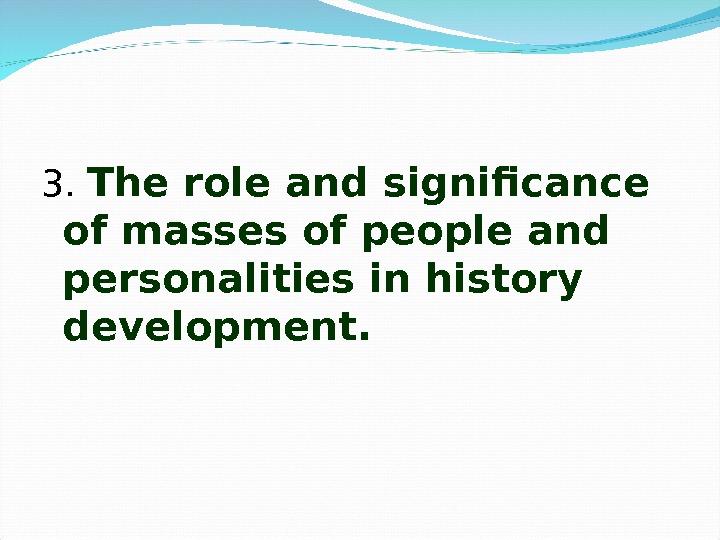
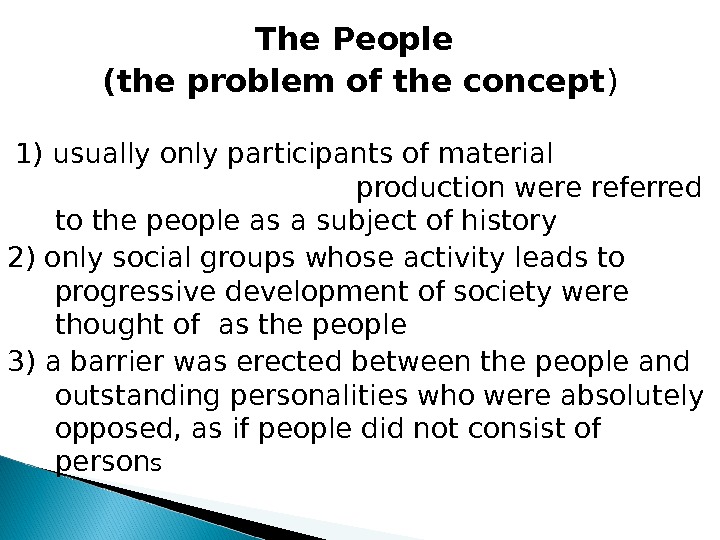
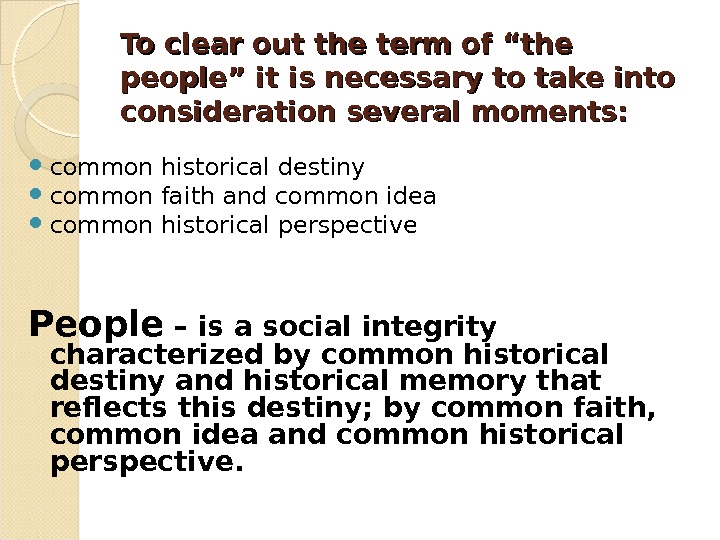
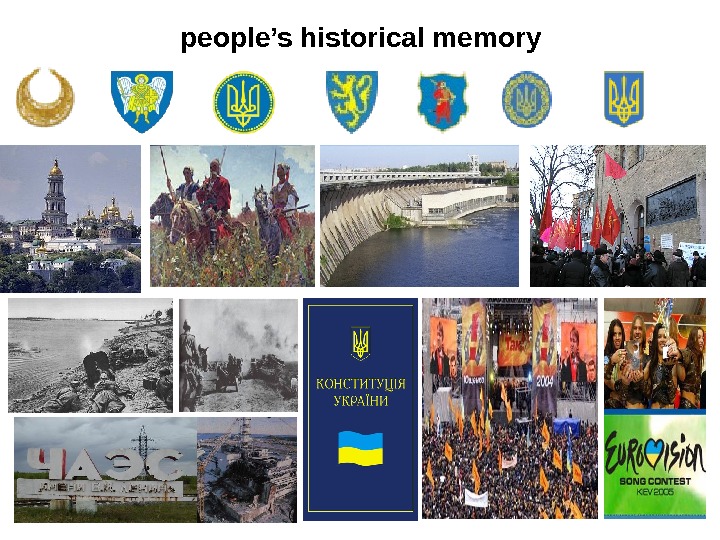
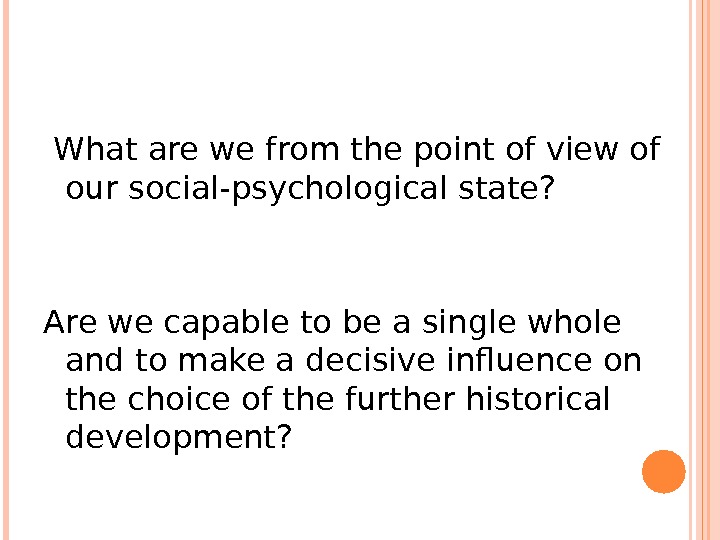
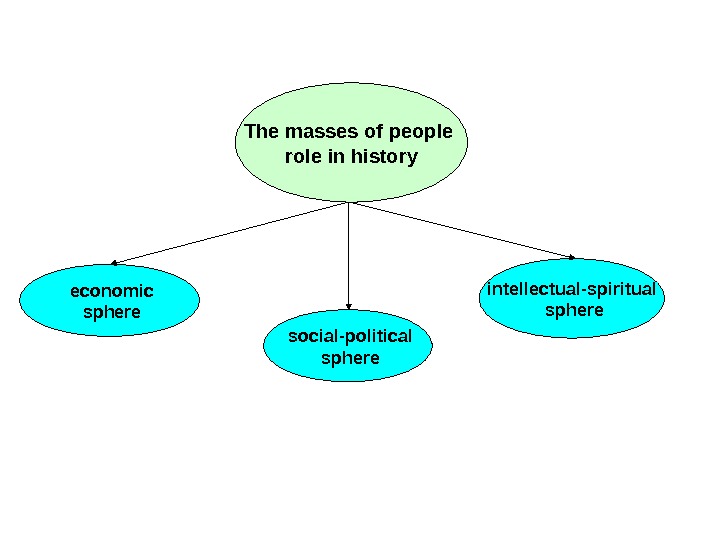
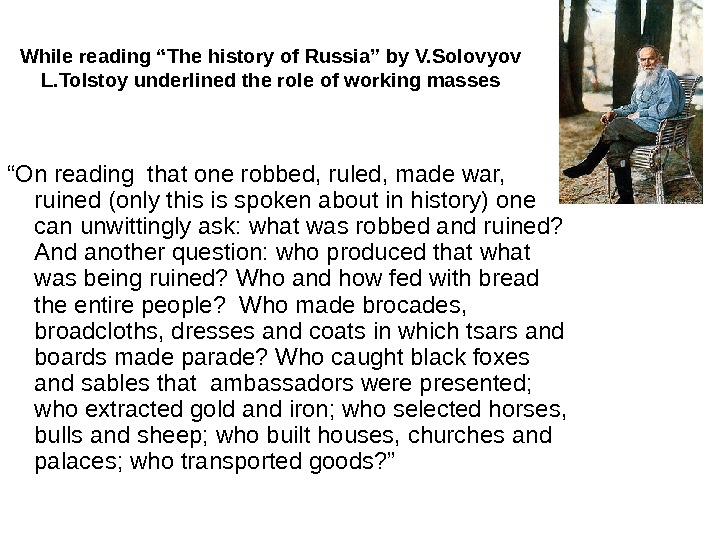
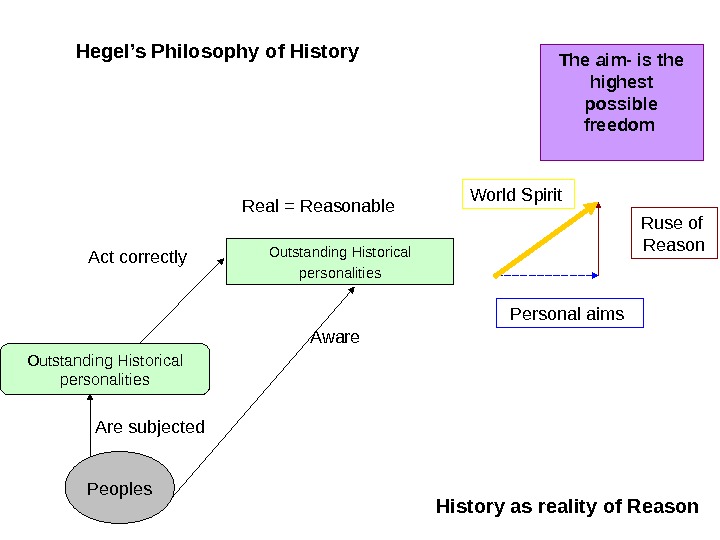
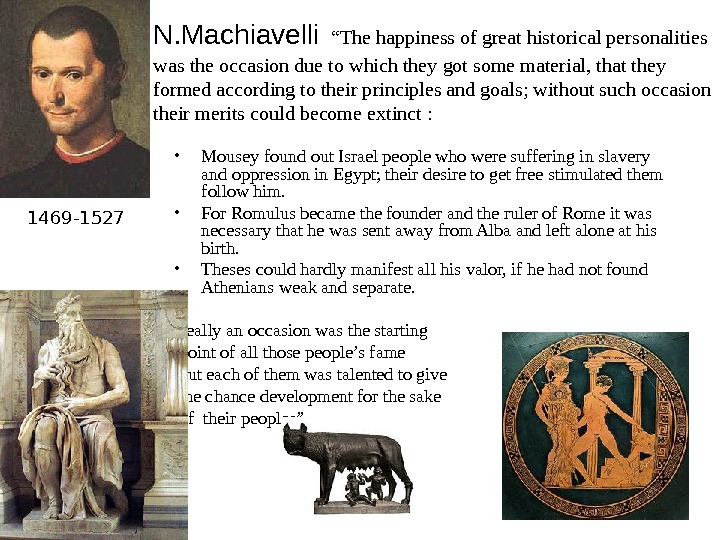
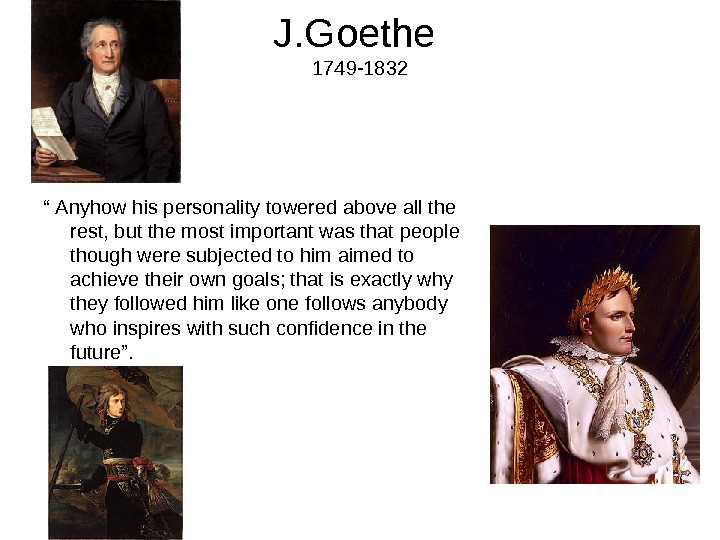
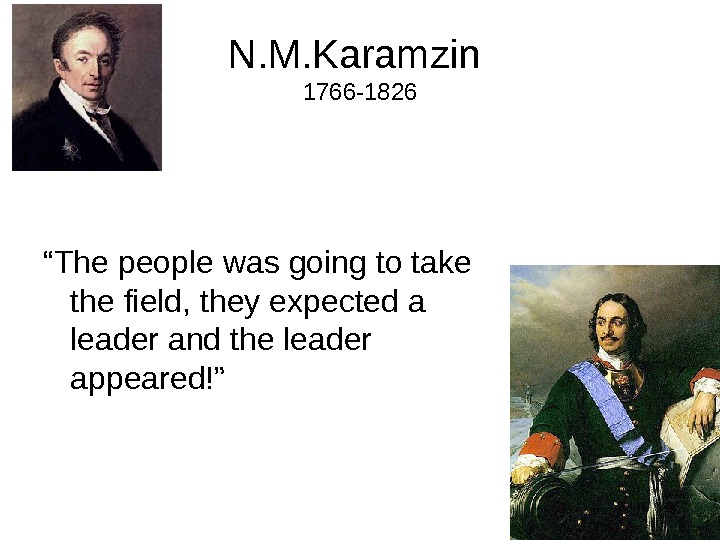
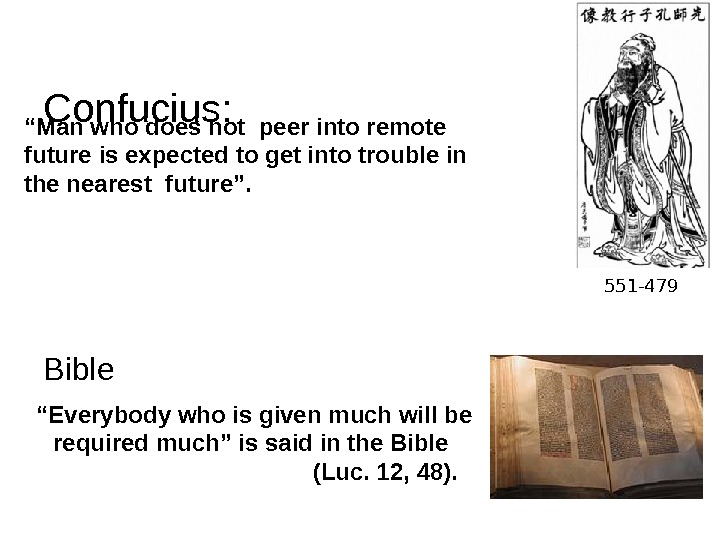
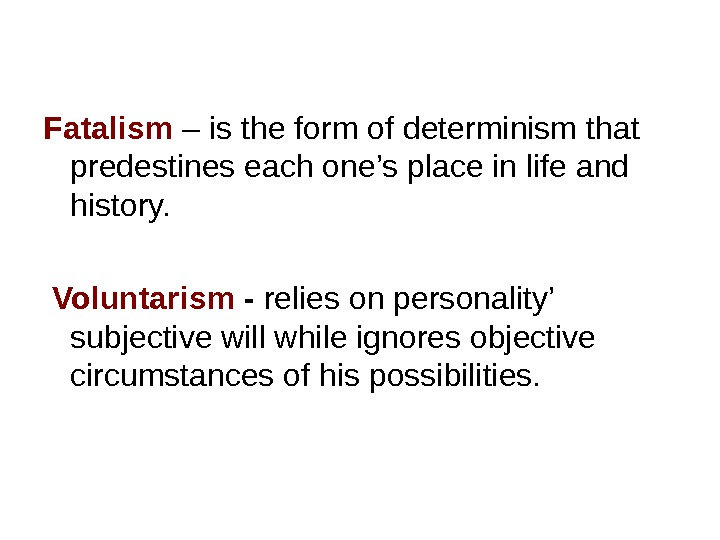
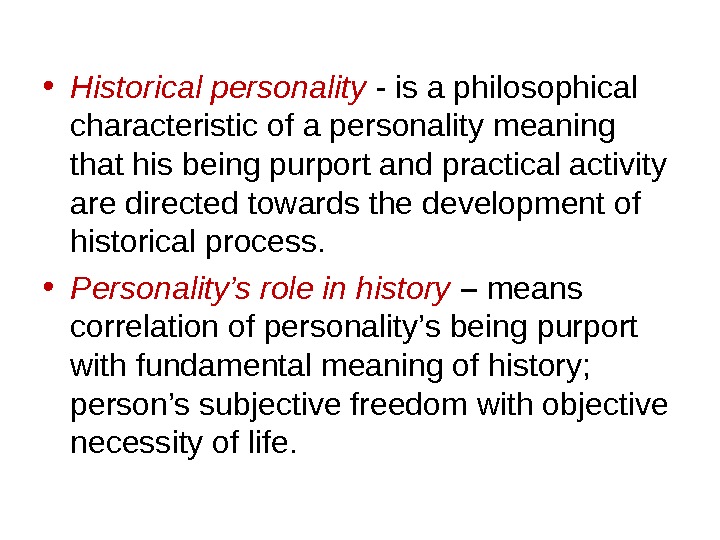
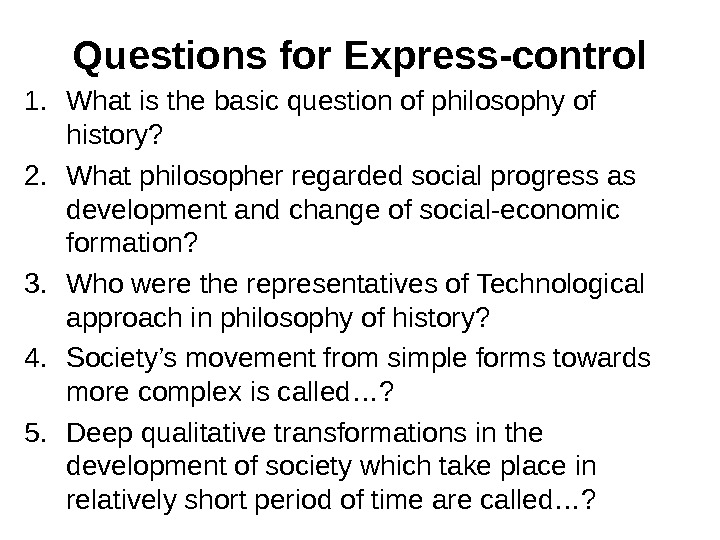
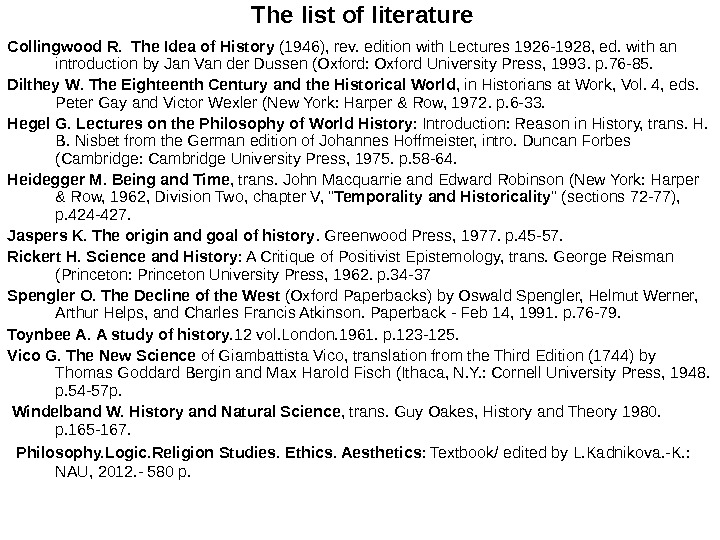
- Размер: 3.8 Mегабайта
- Количество слайдов: 29
Описание презентации Philosophy of history 1. History as по слайдам
 Philosophy of history
Philosophy of history
 1. History as an object of philosophical research: historical development of the circle of problems. The meaning of history. 2. Coincidence of evolutional and revolution principles in the development of mankind’s civilization. 3. The role and significance of masses of people and personalities in history development.
1. History as an object of philosophical research: historical development of the circle of problems. The meaning of history. 2. Coincidence of evolutional and revolution principles in the development of mankind’s civilization. 3. The role and significance of masses of people and personalities in history development.
 1. History as an object of philosophical research: historical development of the circle of problems. The meaning of history. The basic problems of philosophy of history the meaning of history direction of historical process motive forces of history the role and significance of masses of people and personality in history.
1. History as an object of philosophical research: historical development of the circle of problems. The meaning of history. The basic problems of philosophy of history the meaning of history direction of historical process motive forces of history the role and significance of masses of people and personality in history.
 Does historical process have its own qualitative specificity? The ways of the problem solution History is a part of universal natural-cosmic process ( Antique philosophy, Medieval philosophy, partially Renaissance philosophy ) History has its own specificity and in some definite aspects is different from natural-cosmic process (Modern Ages philosophy, German classic philosophy ) History is the sphere of realization of human essential properties or possibilities of human nature (partially philosophy of Renaissance and Modern ages and non-classical philosophy)
Does historical process have its own qualitative specificity? The ways of the problem solution History is a part of universal natural-cosmic process ( Antique philosophy, Medieval philosophy, partially Renaissance philosophy ) History has its own specificity and in some definite aspects is different from natural-cosmic process (Modern Ages philosophy, German classic philosophy ) History is the sphere of realization of human essential properties or possibilities of human nature (partially philosophy of Renaissance and Modern ages and non-classical philosophy)
 What is the direction of human history?
What is the direction of human history?
 Giambattista Vico’s ideas M. Danilevsky O. Spengler A. Toynbee Divine barbarism Heroic feudalism Human civilization 1668 —
Giambattista Vico’s ideas M. Danilevsky O. Spengler A. Toynbee Divine barbarism Heroic feudalism Human civilization 1668 —
 G. Hegel 1770 -1831 “ … Reason dominates in the world, subsequently the world historical process was carried out in a reasonable way. On regarding human history one must clear out that it was a reasonable course of events; World Spirit was with necessity rationally revealed; the Spirit that always possesses the same nature but it represents this indivisible nature in the world actual being”
G. Hegel 1770 -1831 “ … Reason dominates in the world, subsequently the world historical process was carried out in a reasonable way. On regarding human history one must clear out that it was a reasonable course of events; World Spirit was with necessity rationally revealed; the Spirit that always possesses the same nature but it represents this indivisible nature in the world actual being”
 K. Marx F. Engels • materialistic understanding of history • material production as a primary condition of social existence • material production is the main motive force in historical process • people themselves create their own history but in accordance with the objective laws of its development 1818 -1883 1820 —
K. Marx F. Engels • materialistic understanding of history • material production as a primary condition of social existence • material production is the main motive force in historical process • people themselves create their own history but in accordance with the objective laws of its development 1818 -1883 1820 —
 New conceptions of historical process in the XIX –XX centuries Philosophy of history trends. Gnosiological W. Dilthey R. Collingwood R. Aron Ontological R. Mell R. Ramon E. Kallo Axiological W. Windelband H. Rickert Technological D. Bell, O. Toffler, Z. Bzhezingsky,
New conceptions of historical process in the XIX –XX centuries Philosophy of history trends. Gnosiological W. Dilthey R. Collingwood R. Aron Ontological R. Mell R. Ramon E. Kallo Axiological W. Windelband H. Rickert Technological D. Bell, O. Toffler, Z. Bzhezingsky,
 2. Coincidence of evolutional and revolution principles in the development of mankind’s civilization.
2. Coincidence of evolutional and revolution principles in the development of mankind’s civilization.
 The idea of social progress Progress – is a type of development characterized by the transition from the lower to the higher, from inferior to superior Criteria of social progress 1. development of human reason (XVIII century) 2. the level of development of productive forces and production relations (XIX century) 3. social-political, ideological, humanistic and other principles (XX century) The universal philosophical criterion deals with the humanization of society, the place and role of the personality, the measure of his social and spiritual freedom, the level of satisfaction of his material and spiritual needs and the possibilities of his self-realization and self-assertion.
The idea of social progress Progress – is a type of development characterized by the transition from the lower to the higher, from inferior to superior Criteria of social progress 1. development of human reason (XVIII century) 2. the level of development of productive forces and production relations (XIX century) 3. social-political, ideological, humanistic and other principles (XX century) The universal philosophical criterion deals with the humanization of society, the place and role of the personality, the measure of his social and spiritual freedom, the level of satisfaction of his material and spiritual needs and the possibilities of his self-realization and self-assertion.
 Motive forces of history Fate. Personalities Masses of people Elite Democritus Epicurus. Machiavelli Fichte Marx Lenin Paretto Lipinsky
Motive forces of history Fate. Personalities Masses of people Elite Democritus Epicurus. Machiavelli Fichte Marx Lenin Paretto Lipinsky
 • social revolution – is a radical turn in society’s life meaning destruction of the old and confirmation of the new more progressive social system • revolutionary turn. While social revolution changes the whole social-political system and the form of power revolutionary turn is merely the change of the leading top • reform – is a way of changes within the system of social relations that do not suppose the change of the system as a whole. • evolution — is characterized by accumulating quantitative changes which are smoothly transformed into qualitative ones. The forms of social dynamics social revolutionary turn evolution reform bourgeois and socialist revolutions social-democratic revolutions national-liberating revolutions
• social revolution – is a radical turn in society’s life meaning destruction of the old and confirmation of the new more progressive social system • revolutionary turn. While social revolution changes the whole social-political system and the form of power revolutionary turn is merely the change of the leading top • reform – is a way of changes within the system of social relations that do not suppose the change of the system as a whole. • evolution — is characterized by accumulating quantitative changes which are smoothly transformed into qualitative ones. The forms of social dynamics social revolutionary turn evolution reform bourgeois and socialist revolutions social-democratic revolutions national-liberating revolutions
 3. The role and significance of masses of people and personalities in history development.
3. The role and significance of masses of people and personalities in history development.
 The People (the problem of the concept ) 1) usually only participants of material production were referred to the people as a subject of history 2) only social groups whose activity leads to progressive development of society were thought of as the people 3) a barrier was erected between the people and outstanding personalities who were absolutely opposed, as if people did not consist of person s
The People (the problem of the concept ) 1) usually only participants of material production were referred to the people as a subject of history 2) only social groups whose activity leads to progressive development of society were thought of as the people 3) a barrier was erected between the people and outstanding personalities who were absolutely opposed, as if people did not consist of person s
 To clear out the term of “the people” it is necessary to take into consideration several moments: common historical destiny common faith and common idea common historical perspective People – is a social integrity characterized by common historical destiny and historical memory that reflects this destiny; by common faith, common idea and common historical perspective.
To clear out the term of “the people” it is necessary to take into consideration several moments: common historical destiny common faith and common idea common historical perspective People – is a social integrity characterized by common historical destiny and historical memory that reflects this destiny; by common faith, common idea and common historical perspective.
 people’s historical memory
people’s historical memory
 What are we from the point of view of our social-psychological state? Are we capable to be a single whole and to make a decisive influence on the choice of the further historical development?
What are we from the point of view of our social-psychological state? Are we capable to be a single whole and to make a decisive influence on the choice of the further historical development?
 The masses of people role in history economic sphere social-political sphere intellectual-spiritual sphere
The masses of people role in history economic sphere social-political sphere intellectual-spiritual sphere
 While reading “The history of Russia” by V. Solovyov L. Tolstoy underlined the role of working masses “ On reading that one robbed, ruled, made war, ruined (only this is spoken about in history) one can unwittingly ask: what was robbed and ruined? And another question: who produced that was being ruined? Who and how fed with bread the entire people? Who made brocades, broadcloths, dresses and coats in which tsars and boards made parade? Who caught black foxes and sables that ambassadors were presented; who extracted gold and iron; who selected horses, bulls and sheep; who built houses, churches and palaces; who transported goods? ”
While reading “The history of Russia” by V. Solovyov L. Tolstoy underlined the role of working masses “ On reading that one robbed, ruled, made war, ruined (only this is spoken about in history) one can unwittingly ask: what was robbed and ruined? And another question: who produced that was being ruined? Who and how fed with bread the entire people? Who made brocades, broadcloths, dresses and coats in which tsars and boards made parade? Who caught black foxes and sables that ambassadors were presented; who extracted gold and iron; who selected horses, bulls and sheep; who built houses, churches and palaces; who transported goods? ”
 Hegel’s Philosophy of History Peoples. Outstanding Historical personalities Are subjected Aware. Act correctly Real = Reasonable Personal aims World Spirit The aim- is the highest possible freedom History as reality of Reason Ruse of Reason
Hegel’s Philosophy of History Peoples. Outstanding Historical personalities Are subjected Aware. Act correctly Real = Reasonable Personal aims World Spirit The aim- is the highest possible freedom History as reality of Reason Ruse of Reason
 N. Machiavelli “The happiness of great historical personalities was the occasion due to which they got some material, that they formed according to their principles and goals; without such occasion their merits could become extinct : • Mousey found out Israel people who were suffering in slavery and oppression in Egypt; their desire to get free stimulated them follow him. • For Romulus became the founder and the ruler of Rome it was necessary that he was sent away from Alba and left alone at his birth. • Theses could hardly manifest all his valor, if he had not found Athenians weak and separate. Really an occasion was the starting point of all those people’s fame but each of them was talented to give the chance development for the sake of their peoples”. 1469 —
N. Machiavelli “The happiness of great historical personalities was the occasion due to which they got some material, that they formed according to their principles and goals; without such occasion their merits could become extinct : • Mousey found out Israel people who were suffering in slavery and oppression in Egypt; their desire to get free stimulated them follow him. • For Romulus became the founder and the ruler of Rome it was necessary that he was sent away from Alba and left alone at his birth. • Theses could hardly manifest all his valor, if he had not found Athenians weak and separate. Really an occasion was the starting point of all those people’s fame but each of them was talented to give the chance development for the sake of their peoples”. 1469 —
 J. Goethe 1749 -1832 “ Anyhow his personality towered above all the rest, but the most important was that people though were subjected to him aimed to achieve their own goals; that is exactly why they followed him like one follows anybody who inspires with such confidence in the future”.
J. Goethe 1749 -1832 “ Anyhow his personality towered above all the rest, but the most important was that people though were subjected to him aimed to achieve their own goals; that is exactly why they followed him like one follows anybody who inspires with such confidence in the future”.
 N. M. Karamzin 1766 -1826 “ The people was going to take the field, they expected a leader and the leader appeared!”
N. M. Karamzin 1766 -1826 “ The people was going to take the field, they expected a leader and the leader appeared!”
 Confucius: Bible“ Man who does not peer into remote future is expected to get into trouble in the nearest future”. “ Everybody who is given much will be required much” is said in the Bible (Luc. 12, 48). 551 —
Confucius: Bible“ Man who does not peer into remote future is expected to get into trouble in the nearest future”. “ Everybody who is given much will be required much” is said in the Bible (Luc. 12, 48). 551 —
 Fatalism – is the form of determinism that predestines each one’s place in life and history. Voluntarism — relies on personality’ subjective will while ignores objective circumstances of his possibilities.
Fatalism – is the form of determinism that predestines each one’s place in life and history. Voluntarism — relies on personality’ subjective will while ignores objective circumstances of his possibilities.
 • Historical personality — is a philosophical characteristic of a personality meaning that his being purport and practical activity are directed towards the development of historical process. • Personality’s role in history – means correlation of personality’s being purport with fundamental meaning of history; person’s subjective freedom with objective necessity of life.
• Historical personality — is a philosophical characteristic of a personality meaning that his being purport and practical activity are directed towards the development of historical process. • Personality’s role in history – means correlation of personality’s being purport with fundamental meaning of history; person’s subjective freedom with objective necessity of life.
 Questions for Express-control 1. What is the basic question of philosophy of history? 2. What philosopher regarded social progress as development and change of social-economic formation? 3. Who were the representatives of Technological approach in philosophy of history? 4. Society’s movement from simple forms towards more complex is called…? 5. Deep qualitative transformations in the development of society which take place in relatively short period of time are called…?
Questions for Express-control 1. What is the basic question of philosophy of history? 2. What philosopher regarded social progress as development and change of social-economic formation? 3. Who were the representatives of Technological approach in philosophy of history? 4. Society’s movement from simple forms towards more complex is called…? 5. Deep qualitative transformations in the development of society which take place in relatively short period of time are called…?
 The list of literature Collingwood R. The Idea of History (1946), rev. edition with Lectures 1926 -1928, ed. with an introduction by Jan Van der Dussen (Oxford: Oxford University Press, 1993. р. 76 -85. Dilthey W. The Eighteenth Century and the Historical World , in Historians at Work, Vol. 4, eds. Peter Gay and Victor Wexler (New York: Harper & Row, 1972. р. 6 -33. Hegel G. Lectures on the Philosophy of World History : Introduction: Reason in History, trans. H. B. Nisbet from the German edition of Johannes Hoffmeister, intro. Duncan Forbes (Cambridge: Cambridge University Press, 1975. р. 58 -64. Heidegger M. Being and Time , trans. John Macquarrie and Edward Robinson (New York: Harper & Row, 1962, Division Two, chapter V, » Temporality and Historicality » (sections 72 -77), р. 424 -427. Jaspers K. The origin and goal of history. Greenwood Press, 1977. р. 45 -57. Rickert H. Science and History : A Critique of Positivist Epistemology, trans. George Reisman (Princeton: Princeton University Press, 1962. р. 34 -37 Spengler O. The Decline of the West (Oxford Paperbacks) by Oswald Spengler, Helmut Werner, Arthur Helps, and Charles Francis Atkinson. Paperback — Feb 14, 1991. р. 76 -79. Toynbee A. A study of history. 1 2 vol. London. 1961. р. 123 -125. Vico G. The New Science of Giambattista Vico, translation from the Third Edition (1744) by Thomas Goddard Bergin and Max Harold Fisch (Ithaca, N. Y. : Cornell University Press, 1948. р. 54 -57 р. Windelband W. History and Natural Science , trans. Guy Oakes, History and Theory 1980. р. 165 -167. Philosophy. Logic. Religion Studies. Ethics. Aesthetics : Textbook/ edited by L. Kadnikova. -K. : NAU, 2012. — 580 p.
The list of literature Collingwood R. The Idea of History (1946), rev. edition with Lectures 1926 -1928, ed. with an introduction by Jan Van der Dussen (Oxford: Oxford University Press, 1993. р. 76 -85. Dilthey W. The Eighteenth Century and the Historical World , in Historians at Work, Vol. 4, eds. Peter Gay and Victor Wexler (New York: Harper & Row, 1972. р. 6 -33. Hegel G. Lectures on the Philosophy of World History : Introduction: Reason in History, trans. H. B. Nisbet from the German edition of Johannes Hoffmeister, intro. Duncan Forbes (Cambridge: Cambridge University Press, 1975. р. 58 -64. Heidegger M. Being and Time , trans. John Macquarrie and Edward Robinson (New York: Harper & Row, 1962, Division Two, chapter V, » Temporality and Historicality » (sections 72 -77), р. 424 -427. Jaspers K. The origin and goal of history. Greenwood Press, 1977. р. 45 -57. Rickert H. Science and History : A Critique of Positivist Epistemology, trans. George Reisman (Princeton: Princeton University Press, 1962. р. 34 -37 Spengler O. The Decline of the West (Oxford Paperbacks) by Oswald Spengler, Helmut Werner, Arthur Helps, and Charles Francis Atkinson. Paperback — Feb 14, 1991. р. 76 -79. Toynbee A. A study of history. 1 2 vol. London. 1961. р. 123 -125. Vico G. The New Science of Giambattista Vico, translation from the Third Edition (1744) by Thomas Goddard Bergin and Max Harold Fisch (Ithaca, N. Y. : Cornell University Press, 1948. р. 54 -57 р. Windelband W. History and Natural Science , trans. Guy Oakes, History and Theory 1980. р. 165 -167. Philosophy. Logic. Religion Studies. Ethics. Aesthetics : Textbook/ edited by L. Kadnikova. -K. : NAU, 2012. — 580 p.

